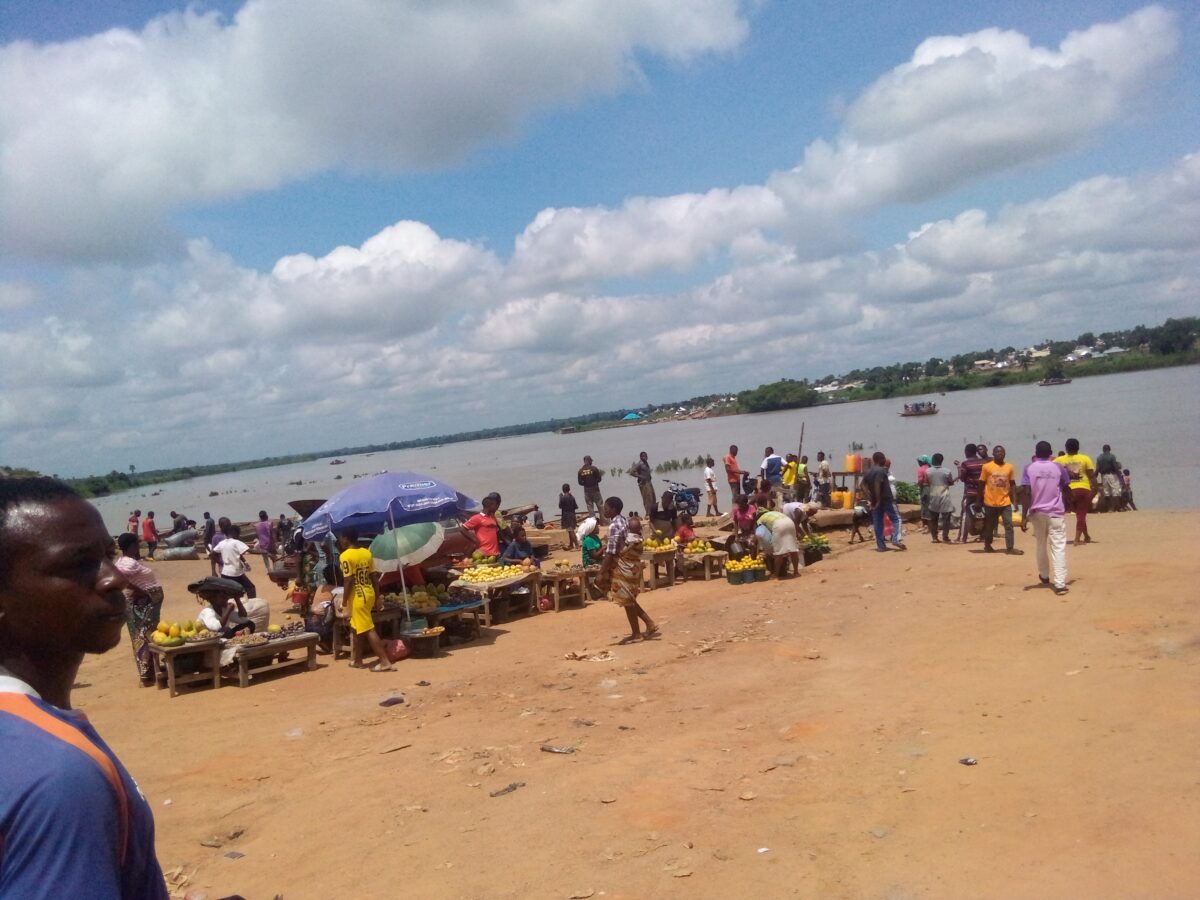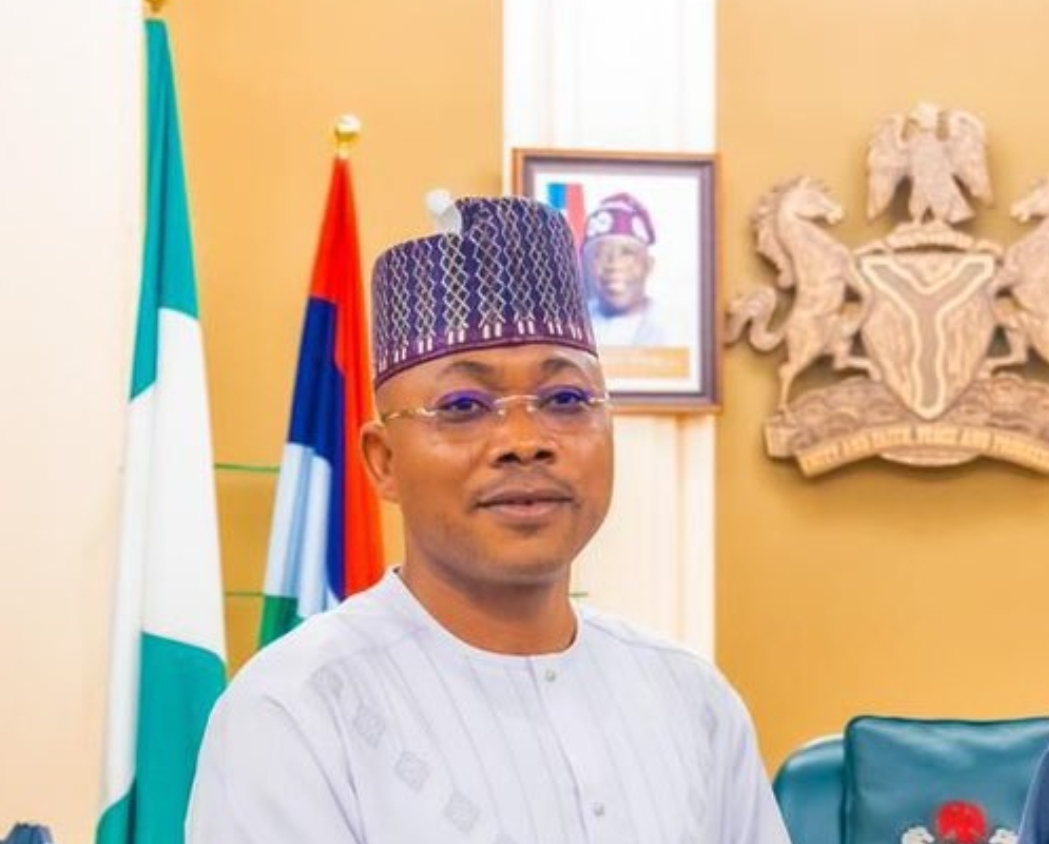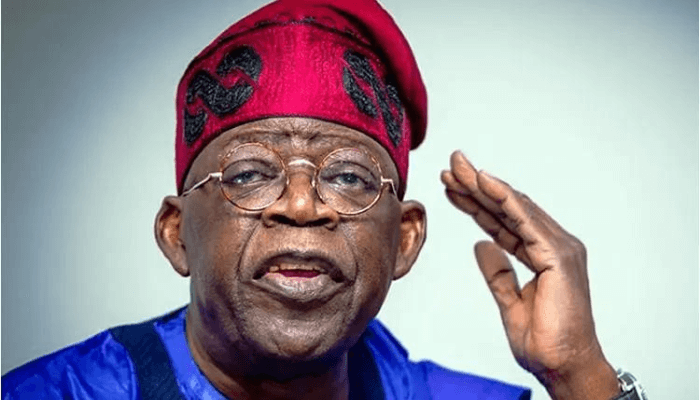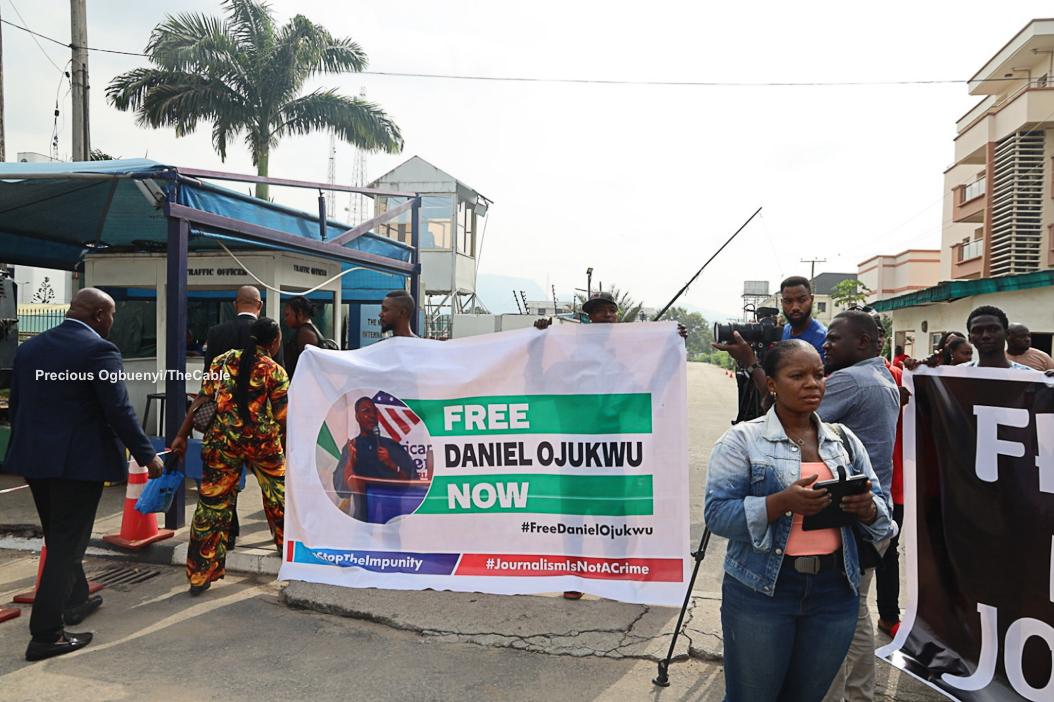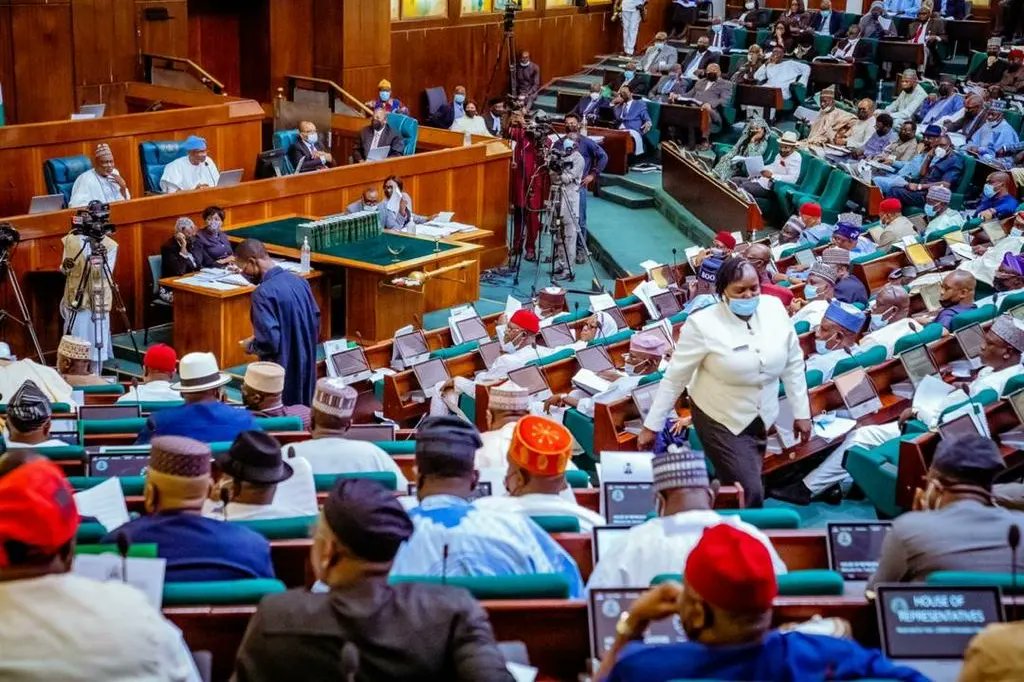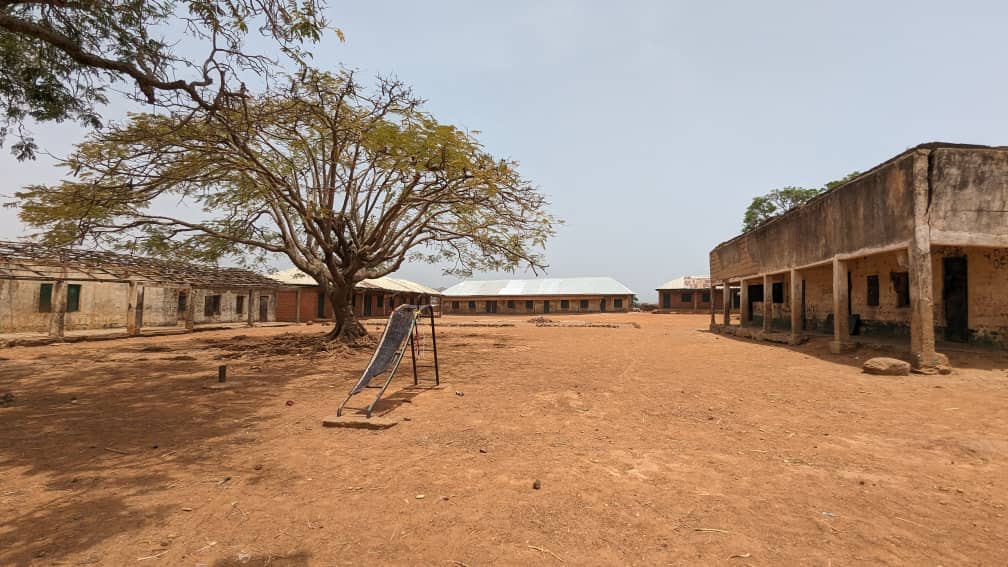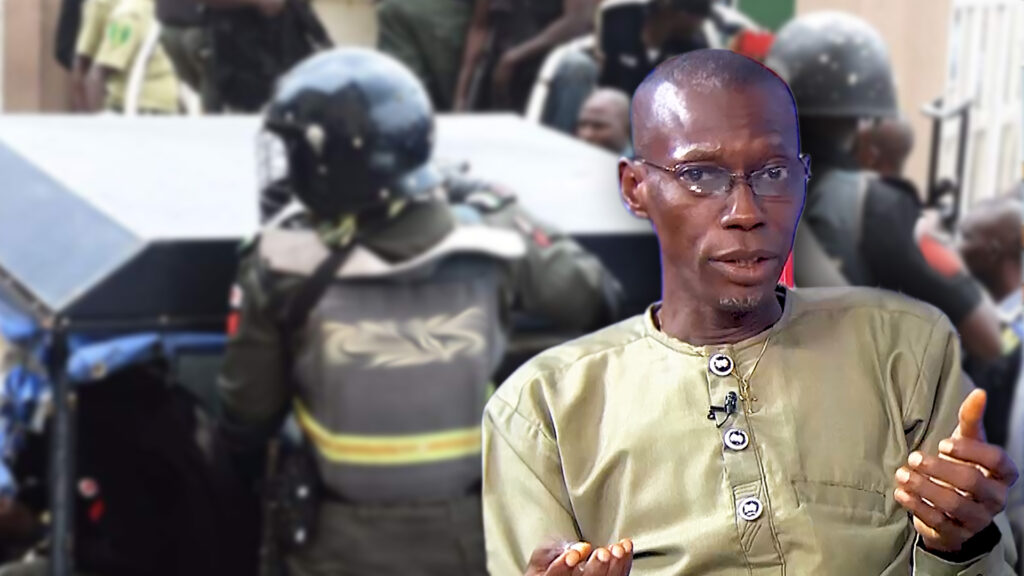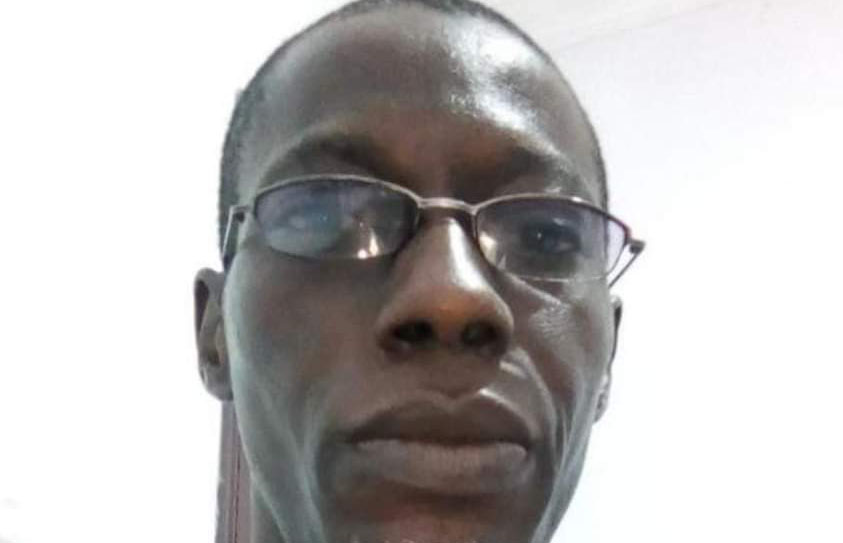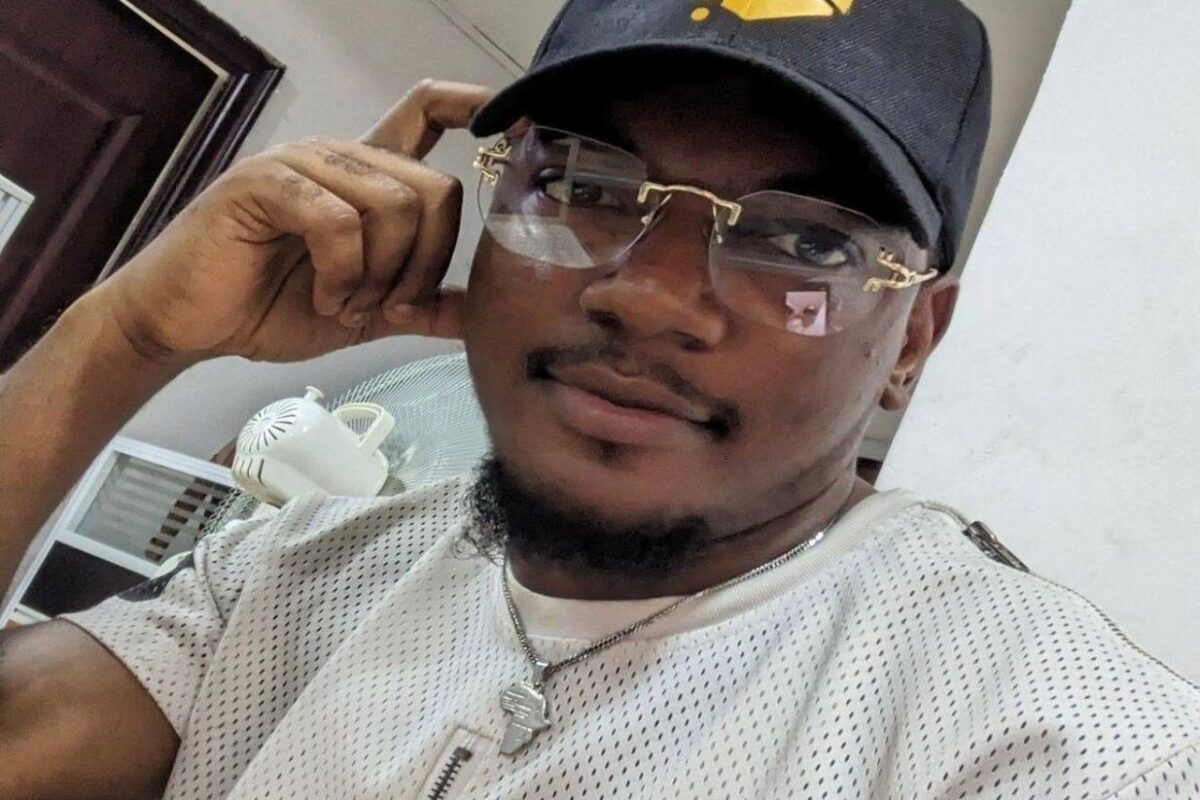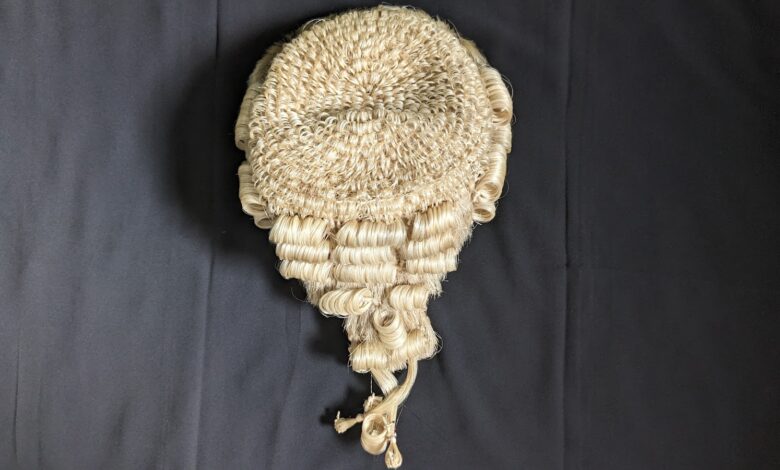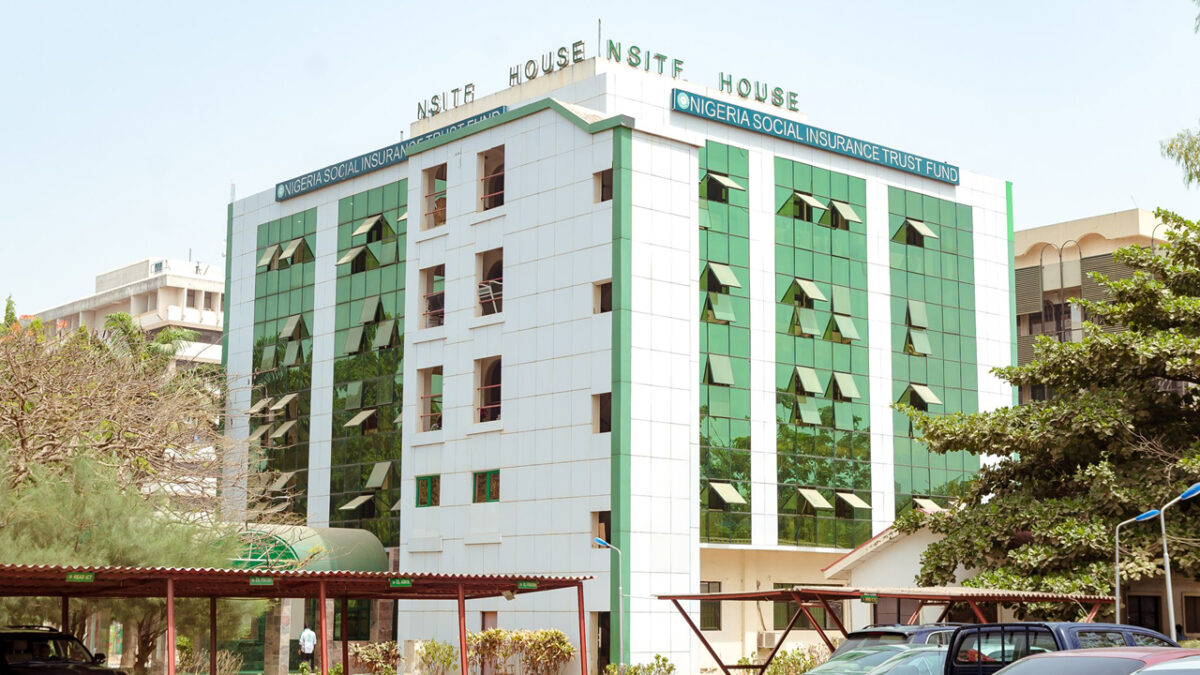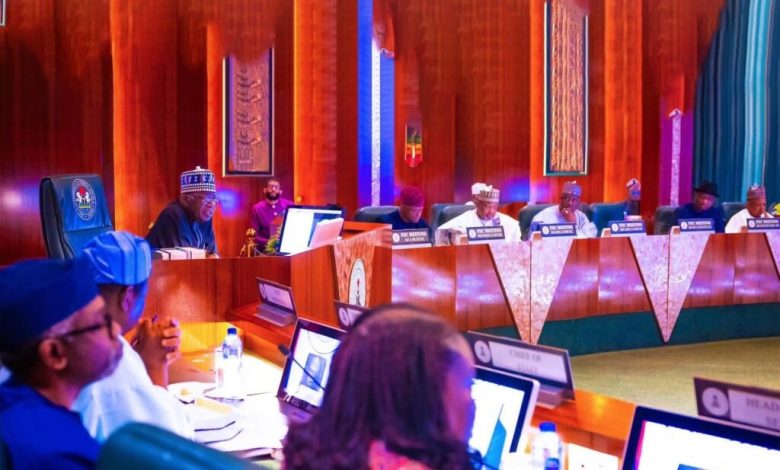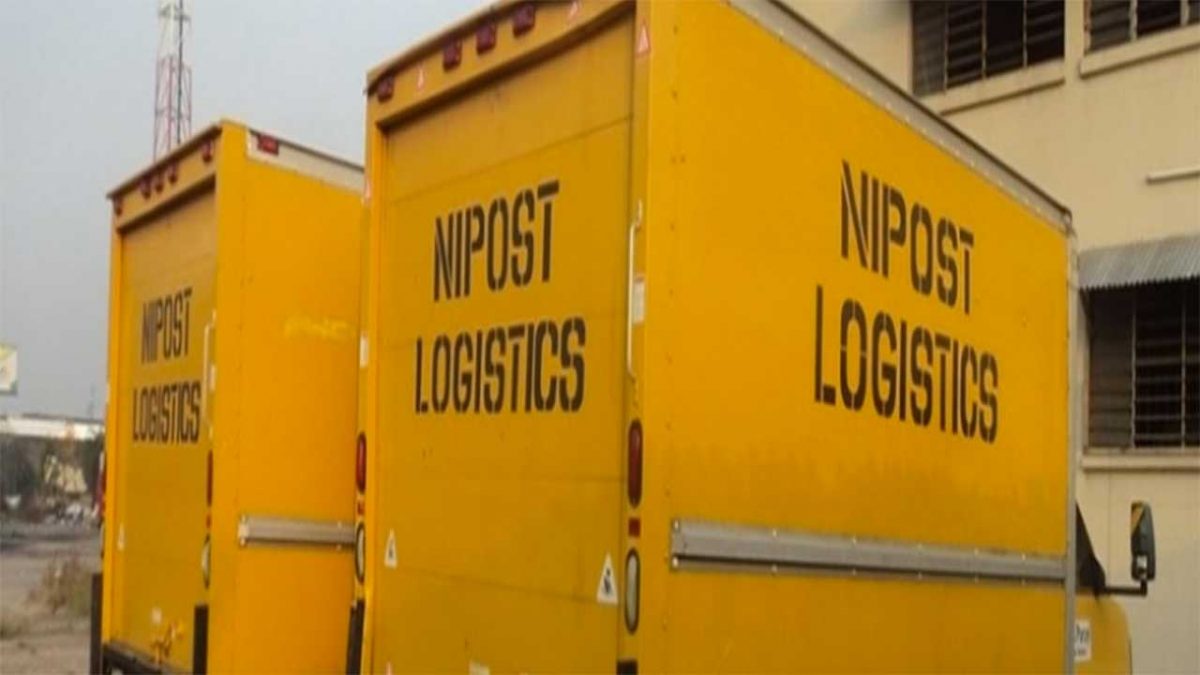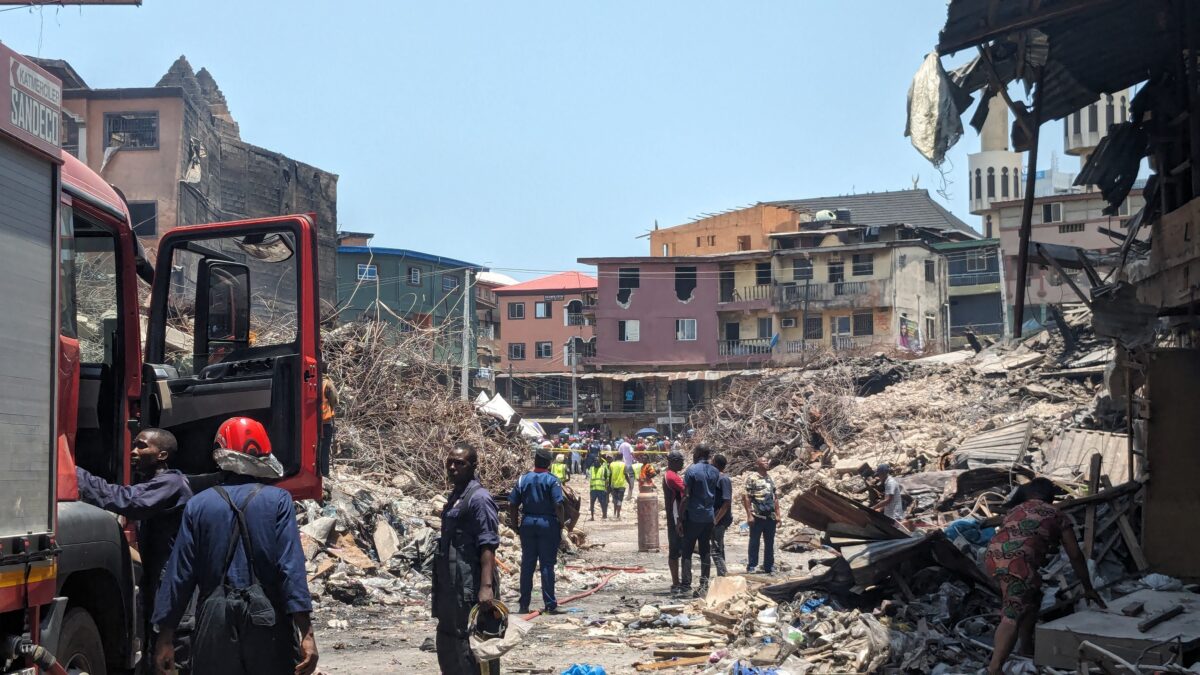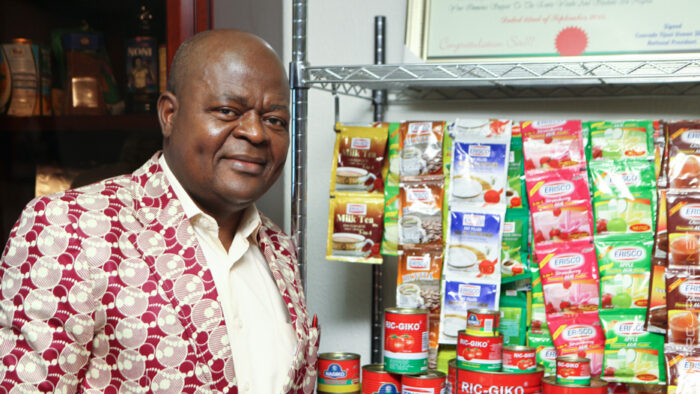It was not just a bright Friday Morning on the Buruku River bank; it was also a market day in the community, and as usual, the river bank was a beehive of activities: women and children running after moving cars under the sun to sell their wares; and bike men conveying passengers back and forth a 23 km single-lane road leading to the popular Buruku Junction located along Gboko road, a two hours’ drive from Makurdi, the Benue State capital.
Then there were young men comprising ferry drivers, area boys and others with no specific job description, who earn a living from the river by just helping cars cross through.
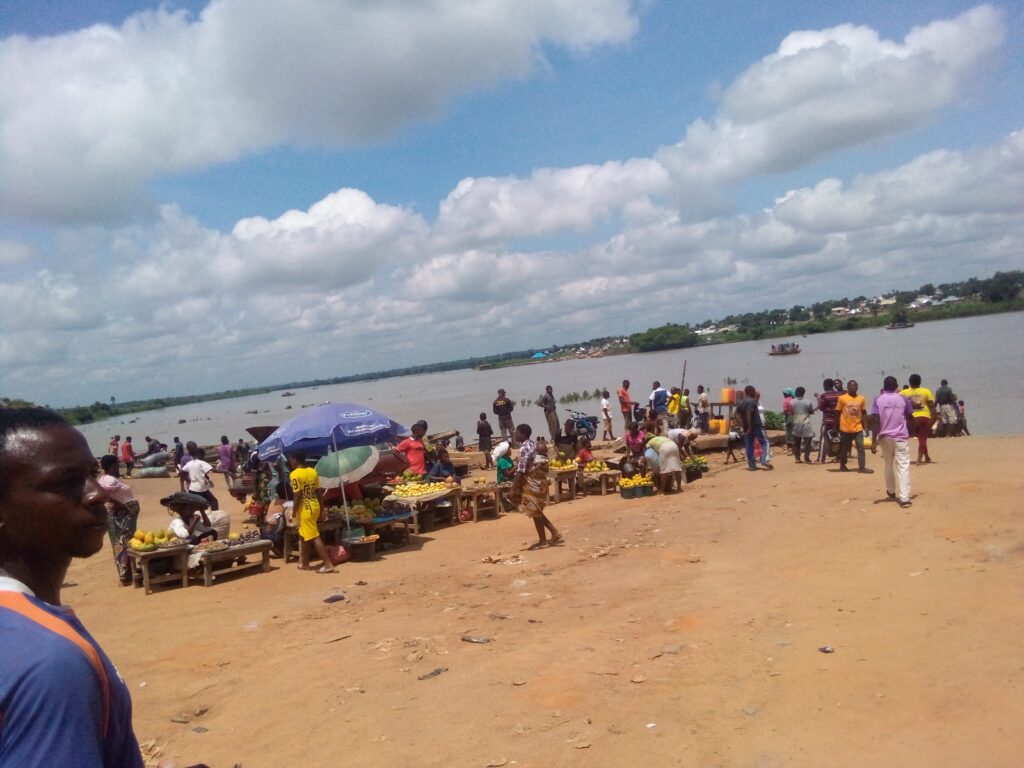
Among the several cars lined up close to the river bank waiting to cross to the other side was an ash colour Toyota Venza belonging to a man who seemed to be in his early 60s. He identified himself as Inuwa.
It eventually got to his turn, and he handed his car key to Godwin, one of the community youths who earn a living from assisting drivers that cannot drive their cars into the wooden ferry.
Godwin hopped into the car and swiftly drove it unto a wooden ferry through a makeshift stair attached to it. The ferry then conveyed the car alongside its owner to the other side of the river in a 10-minute ride.
On reaching the other side of the river, Godwin drove the car out of the boat and handed the key back to Inuwa who gave him a token in addition to the N2,500 fare. Inuwa then continued his long journey to Taraba State through the nearby Anyiin village.
Inuwa is among the numerous drivers who risk their lives daily crossing Buruku River, an extension of the popular Benue river. The river links Zaki-biam, Katsina-Ala, Anyiin, Ugba and other communities of Benue State. It is also a shortcut for travellers going to Taraba, Plateau, Kaduna and other northern states from Abuja, Enugu, Anambra and other southeastern parts of the country, the alternative being the Katsina-Ala route, which this reporter gathered to be over an hour longer and in a deplorable condition.
Inuwa, who said he was travelling from Abuja to Taraba State, added that he understood how risky it was to cross the river alongside his car without a life jacket, but said he had no option.
“We are living in a risky country, and the leadership of the country is also very risky, so I don’t mind taking the risk because I don’t have an option. They just showed me this route, and I’ve been taking it ever since,” Inuwa told this reporter.
This reporter gathered that there are over 37 ferries in the river, and each carries at least eight cars across the river in a day. With the recent increase in fuel price, commercial buses are charged N3,000, private cars, N2,500, and individuals pay N200 each, as opposed to the initial prices of N2,500, N2000 and N200 respectively.
BOAT MISHAPS
Apart from the regular cases of boat capsizing, which this reporter gathered to happen at least bi-weekly, mostly involving the failure of drivers to successfully drive their cars into or out of the ferry, there have been some major boat mishaps which have claimed several lives and damaged goods and properties being conveyed across the river.
One such mishap happened in December 2013, when a boat carrying about 50 passengers capsized minutes after starting its journey at a crossing terminal on the river bank. About 17 bodies were recovered following the incident, and none of the victims made it out alive.
Similarly, another boat mishap in 2018 drowned 17 motorbikes and snatched the lives of over 20 passengers crossing the river to attend a funeral. None of the victims were found as the mishap reportedly happened in the deepest part of the river.
The most recent was on September 2022, when a boat transporting 40 passengers across the same river capsized leaving six dead and 26 rescued by marine police and fishermen.
The September 2022 mishap involved one of the ferries belonging to Bajah Ityav, a timber dealer who said he also owned two ferries on the river.
Since the mishap happened, Bajah has not been able to replace the damaged ferry which he said cost him over a million naira to buy. He is now left with one, and it hasn’t been easy for him and his business.
Bajah has been in the business of cutting and selling timber for over five years. He gets the timber from Zingi, a village very close to Buruku, and sells it in Gboko, another nearby village across the river. This makes him a frequent user of the Buruku River.
READ ALSO: REPORTER’S DIARY: Has Tinubu Opened Land Borders? I Went to Idi-Iroko to Find Out
“It has not been easy for me doing business here and moving timber via the river. This means that there’s a limit to the quantity I can carry. Hence, I have to go more often than I should. But having a bridge here will bring so much ease and comfort, considering how dangerous it is to move my goods via this river. We will be very happy to have a bridge here, and we are hoping that this current administration will finally remember us,” he said.
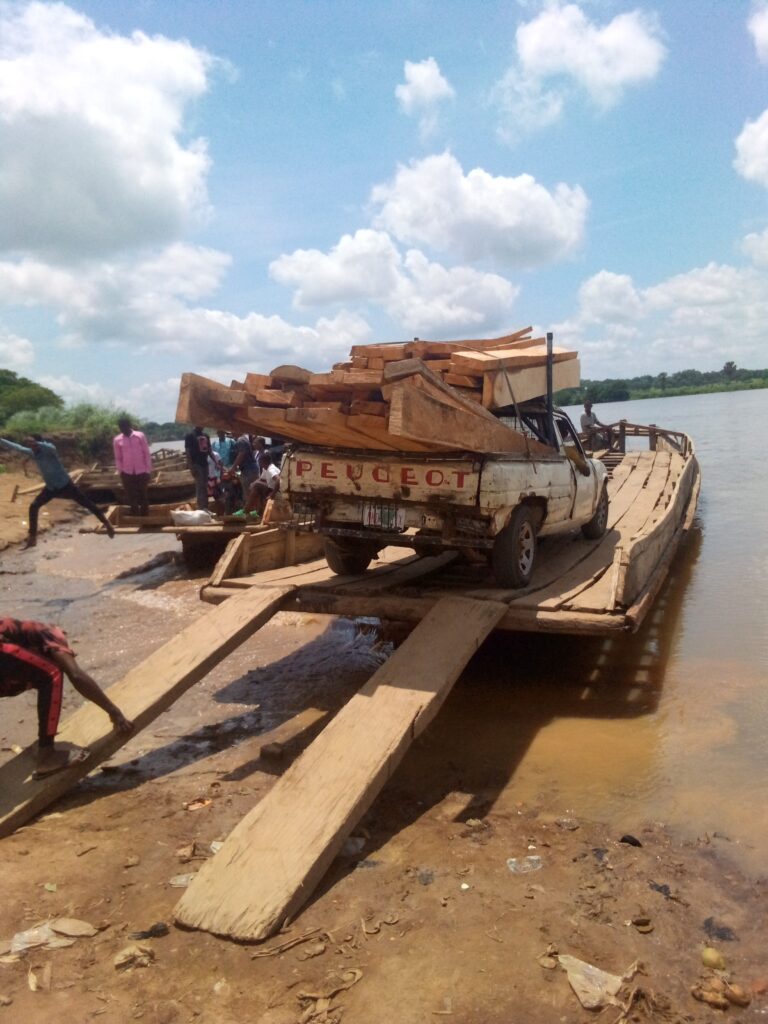
Bajah said there had been a lot of mishaps on the river but they often don’t make it to the news because they are considered minor if no life is lost.
In all these cases, police and government officials were always first to commiserate with victims and offer condolence messages with varying promises of befitting funerals and monetary compensation to the families affected.
But one thing remains constant after each mishap: a cry to the government to find a lasting solution and prevent deaths by simply building a bridge to end the woes of these communities.
FUTILE SOLUTION EFFORTS
Interestingly, the National Assembly has been deliberating the construction of a bridge across the Buruku River since 2008, after the then House of Representatives member representing Buruku federal constituency, Hon. Orker Jev, moved the motion for the construction of a bridge across the river.
N300 million was allocated for the design of the bridge, while the cost of the actual construction was estimated to be N4 billion.
FIJ gathered that the contract for the design was awarded to Julius Berger construction company, which delivered the design, but actual work never began on the site.
In 2010, the Federal Government introduced a new policy of Private Public Partnership (PPP) in the construction of bridges. With the new arrangement, investors and the government were expected to pool resources together for the construction of bridges while a repayment arrangement is worked out thereafter.
This was followed by the appointment of Roughton International by the Federal Ministry of Works to carry out transaction advisory services, which would include conceptual designs, condition assessment, traffic studies, legal due diligence, traffic modelling and risk assessment, among others.
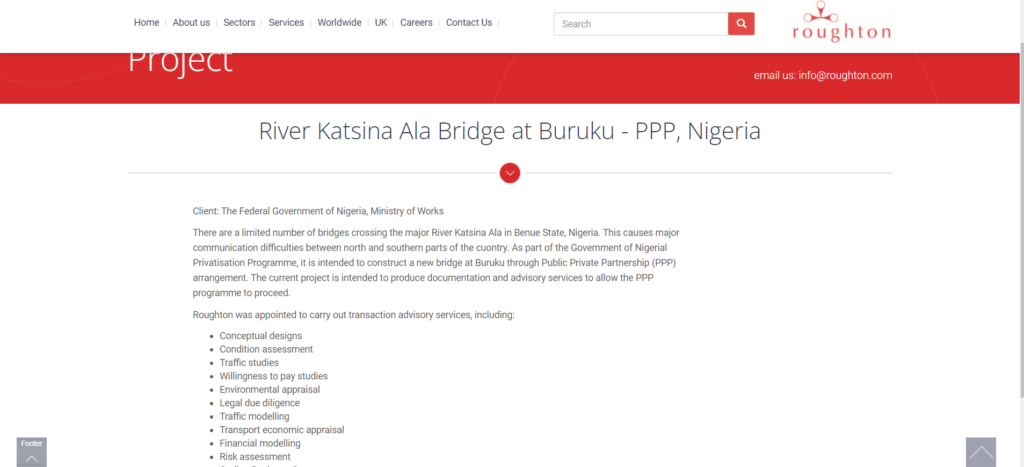
What seemed like a ray of sunlight beamed on the community in 2018, following the major boat mishap that claimed 17 lives. The Federal House of Assembly set up a delegation led by the then deputy chief whip of the House, Hon. Pally Iriase, to visit the river for an on-the-spot assessment.
During their visit, members of the team said they would mount pressure on the president so that the bridge could be built. They even produced a report of their findings urging the Federal Ministry of Power, Works and Housing to include the Buruku bridge project in the 2019 budget estimates.
As usual, the hopes of the community were raised and dashed again after the 2019 budget was published and there was nothing for them. Yet, they kept hope alive until 2022 when the sum of N1.2 billion was approved for another design of the same Buruku bridge as captured in the 2022 national budget.
FIJ found that the sum of N400 million was also approved for the same Buruku bridge as captured in the 2023 national budget. But what is surprising is the fact that it was listed as an ongoing project despite work not starting on the proposed site.
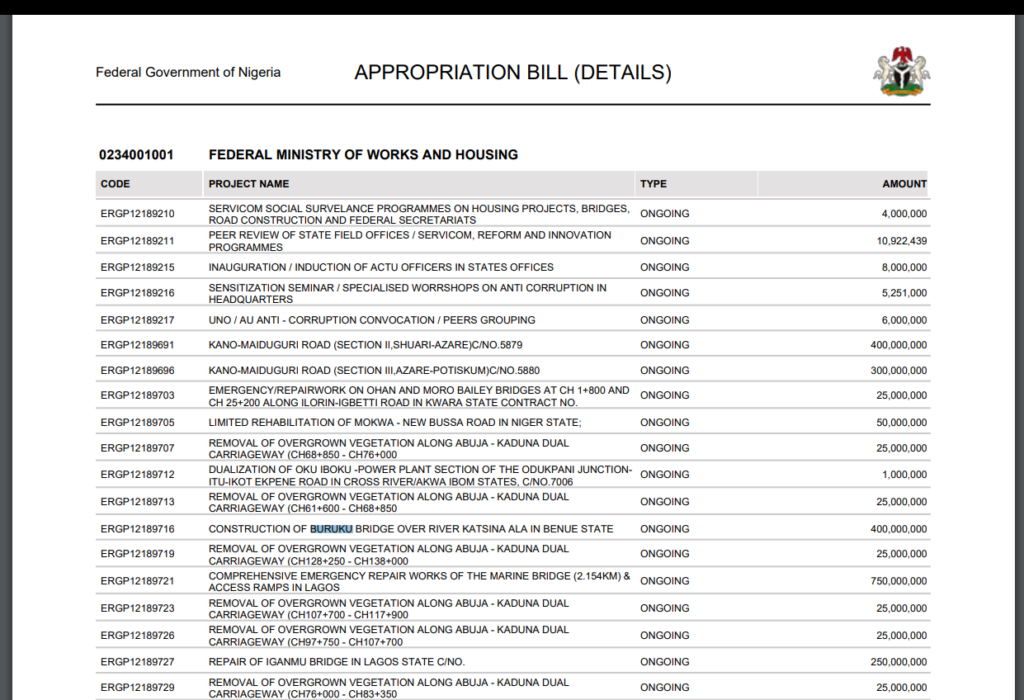
It has been 14 years since, but it has remained one of the several unfulfilled promises made to the people of Buruku, as they are yet to see any positive effort towards alleviating their woes and bringing their community one step towards development.
APPROVAL, NO IMPLEMENTATION
Ever since the first budgetary allocation was made in 2009, different stakeholders expected the day the actual construction work would begin on the river. But as nothing was done, several accusing fingers have been flying around not knowing where exactly to rest or who to blame for the continued delay.
While residents of the community accuse their leaders and representatives of sitting on the money approved for the project by the federal government, others accuse youths of the community and stakeholders who earn a living from the river of sabotaging government efforts to construct a bridge since it is bound to take away their means of livelihood.
David Ayange, a resident of Gboko, a neighbouring community to Buruku, is one of the people who share the opinion that the community is sabotaging efforts to construct a bridge at Buruku.
“Work has never been brought close to that area as regards a bridge, and the residents won’t even allow it. I know this because I asked my parents when I was much younger. I later asked my friends from the community, and they told me the residents would not allow the construction of a bridge there,” Ayange told FIJ.
It is not just Ayange who shares this view. A search through social media reveals that other people have at some point accused the youths of Buruku of sabotaging government efforts to build a bridge across Buruku.
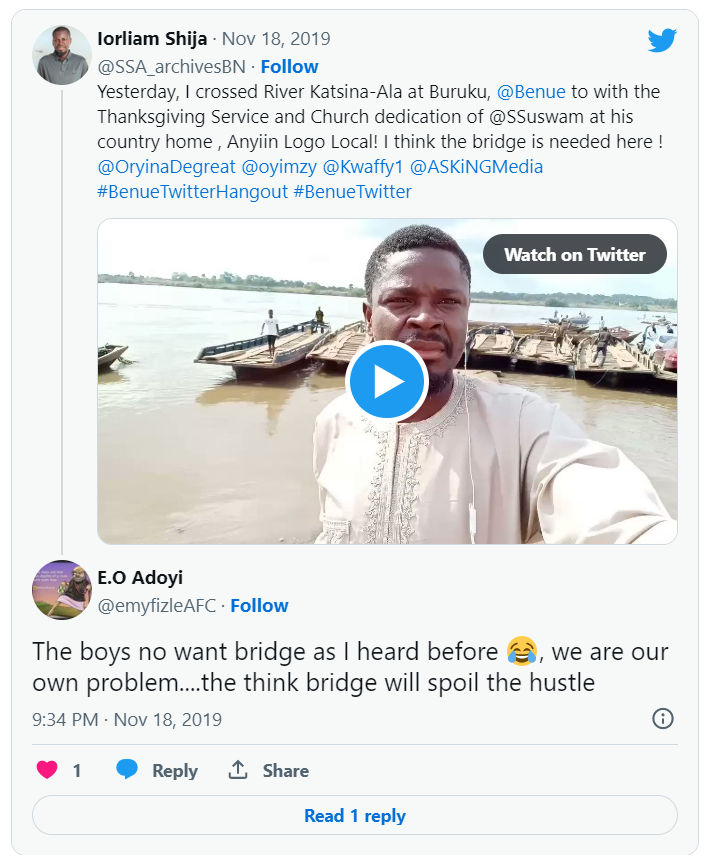
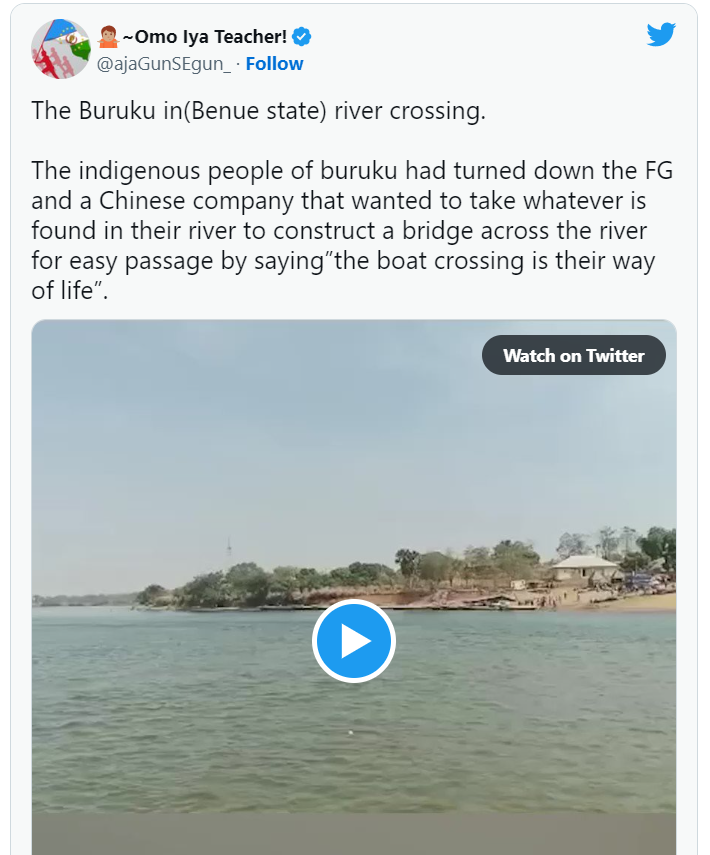
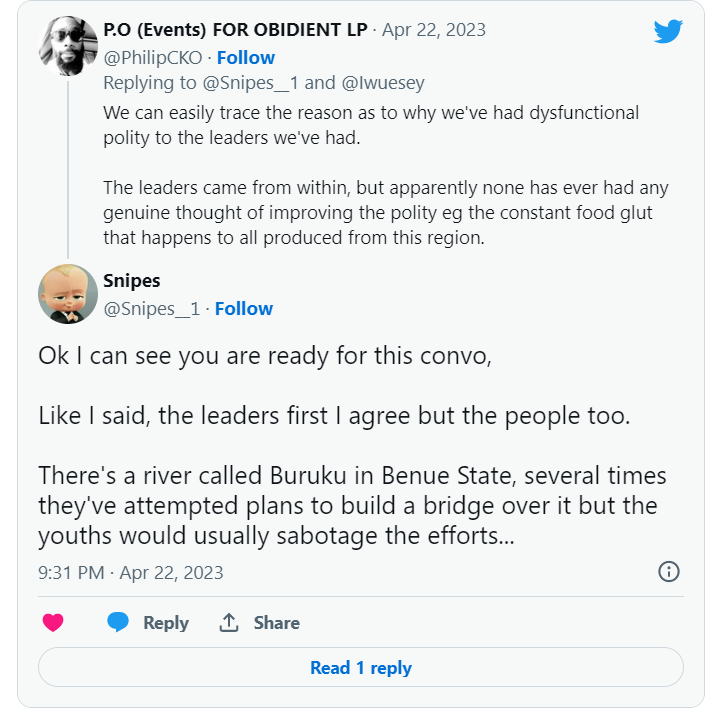
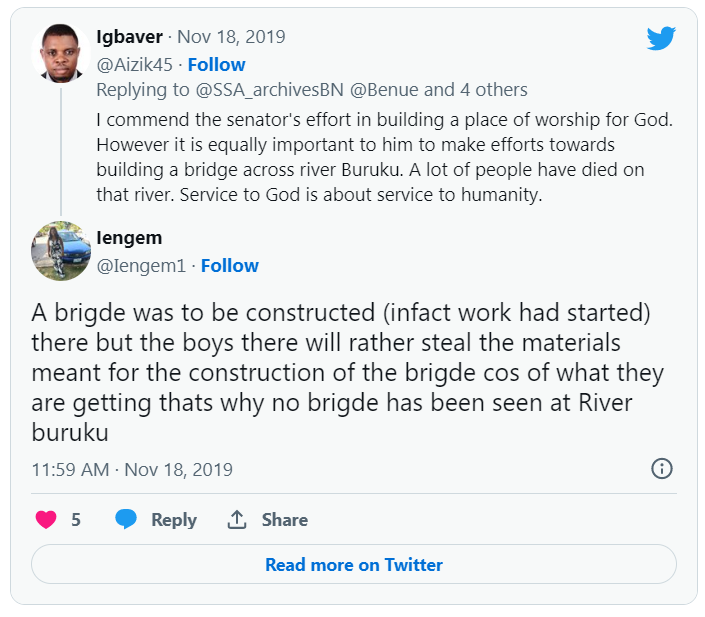
Meanwhile, youths of Buruku have vehemently denied these claims, maintaining that they have never seen any government official in Buruku with a mission of constructing a bridge.
This reporter approached a middle-aged man seated under a local shed on the river bank with a small booklet where he writes what looks like ferry numbers. He identified himself as Pila Nakombo and said he was a booking crack.
When asked to comment on the claims that the youths of the village had continued to sabotage government efforts to build a bridge there, Nakombo got rather infuriated at the claim and said it was the most ridiculous thing he had ever heard.
“How can we stop a federal government project? We know that a bridge will be an advantage to us because it will bring development. We do not even have the capacity to stop the Federal Government from doing any project here, “ Nakombo told FIJ.
“A lot of Nigerians pass here daily. Senators, governors and National Assembly members ply this route, and they all have first-hand experience of what happens here. Every time such an important personality comes here, we plead with them to build a bridge for us. Even the former Governor of Benue uses this route, as it is the only route to his house. We are already tired of the promises, so we do not take it for anything again until we see a physical construction here.
“We are also wondering why the government has refused to help us build a bridge here despite all the news of deaths and mishaps that have happened.”
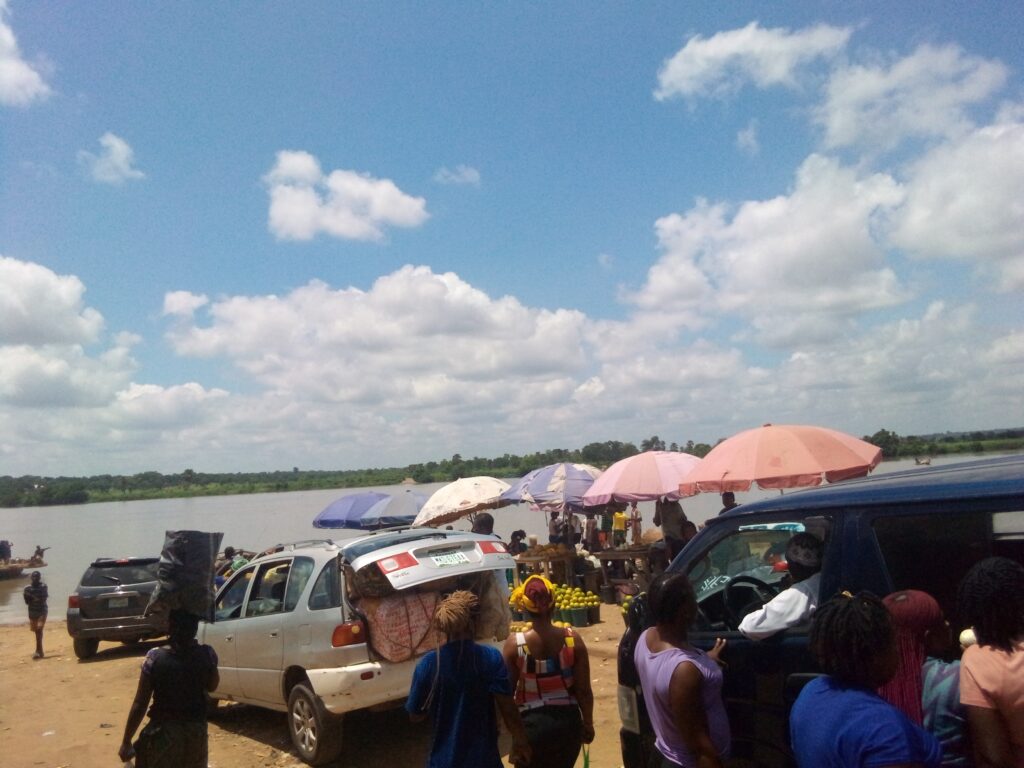
Moses, a ferry driver in Buruku not only denied the claim, he added that they were aware that government approved money for a bridge but he believed the money had been diverted by their leaders.
“Na people wey dey our head office dey chop the money nah: our government and house of assembly members,” Moses said angrily and left almost immediately.
Simon Ayaku, the former Deputy Chairman of Tombo Maritime Union Workers (an association of ferry owners in Buruku River), described the claim as laughable.
“We only heard that the Buruku bridge is on budget, but nothing has been done. I believe the money is in the Federal Government’s account because they will hand the money over to the contractors to come and build the bridge, not to private individuals, so the notion that we are sabotaging their efforts is laughable.
“We would be more than happy to see this bridge because it would bring a lot of investment and development to our community.”
As one of the ferry owners in the river, who is most likely going to go out of business if a bridge is constructed, Ayaku said they would not be affected at all since there are other smaller rivers in the community where they can easily move their boats to and continue business there.
“One engine alone costs around N950,000, apart from the cost of constructing the ferry with wood, which would bring the total cost to about N1.5 million. We can easily remove the engine and sell it as well to get back our money.
“If the bridge is constructed, it would ease a lot of things, help our businesses and increase our revenue. It would ease movement from one community to another, and we can easily transport farm produce in large quantities because we produce a lot here, especially in Buruku and the neighbouring Logo LGA; but without proper transportation channels, such products would remain here and probably spoil since we cannot consume all that we produce,” Ayaku added.
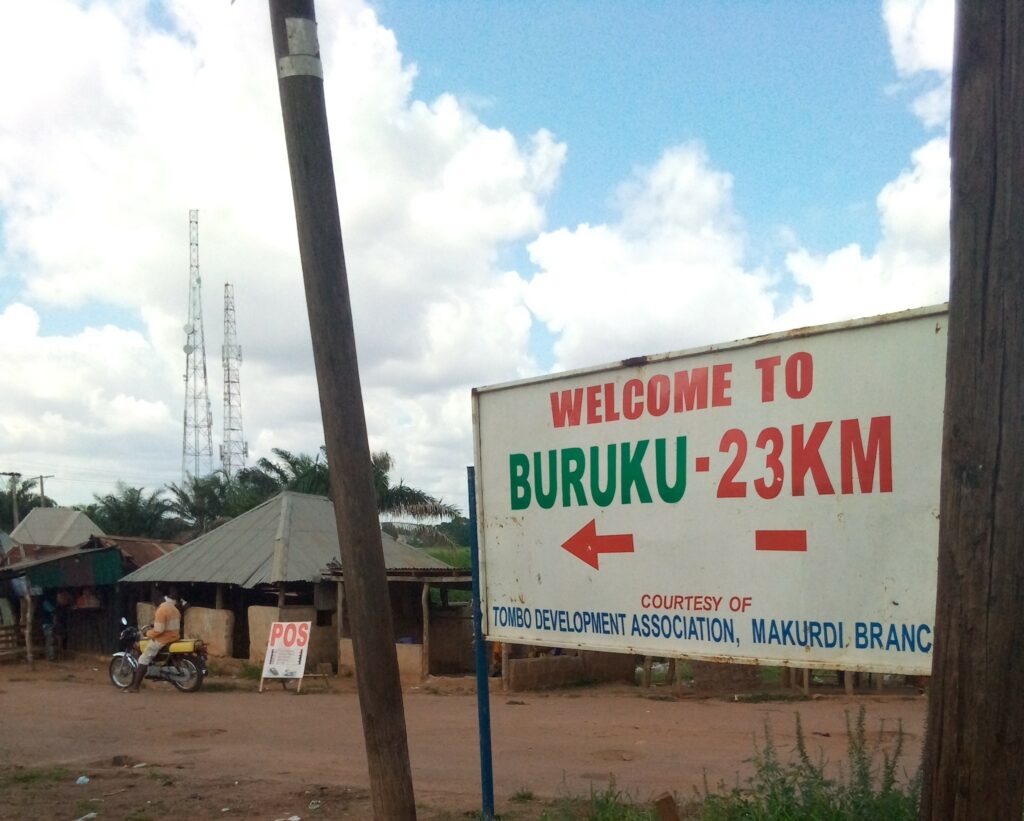
Ayem Sesugh is one of the vibrant Nigerian youths who earn a living from the activities going on in the river. Popularly known as Anjir Boss among colleagues and frequent users of the river, Sesugh told this reporter that he studied Geography at Ahmadu Bello University, Zaria, but was now working at the river as a control officer because there was no job. He has been there for over three years.
“We have different sizes of boats with different capacities, and we make sure to load each boat according to its capacity and the weight of the goods, vehicle or passengers,” Ayem told FIJ.
“This work is very hard and requires physical fitness. We would not be doing this if there is a bridge here. But nothing like that has ever happened. We heard in the news that money had been approved for a bridge here, but nothing like that has ever happened.”
Like others, Ayem believes he would have got a better job if there was a bridge in Buruku, as it would most likely attract development considering the agricultural potential of the community.
ECONOMIC DISADVANTAGE
Benue State prides itself as the ‘Food basket of the nation’ because of its rich agricultural potential, which includes large-scale production of fruits, yam, rice, beans, cassava, potatoes, maize, soya beans, sorghum, millet and cocoyam. Buruku and its surrounding communities, including Gboko and Katsina-Ala, are among the communities with a high number of farm produce, especially yam and oranges.
Just a few kilometres from River Buruku is Yandev, a community in the Gboko LGA of Benue State. Residents of Yandev are primarily farmers dwelling in an environment that possibly has more orange trees than humans.
People in this community boast of bountiful harvests each year, which is usually much more than they can consume.
After each harvest, they are left with three options: transport to other parts of the country, preserve the products, or use them as raw materials for other products. But the lack of relevant factories and proper means of transportation places a huge limit on their ability to explore these options.
This reporter visited Nachi Msugh, one of the commercial farmers in Yandev, who also owns several orchards comprising more than a thousand orange trees.
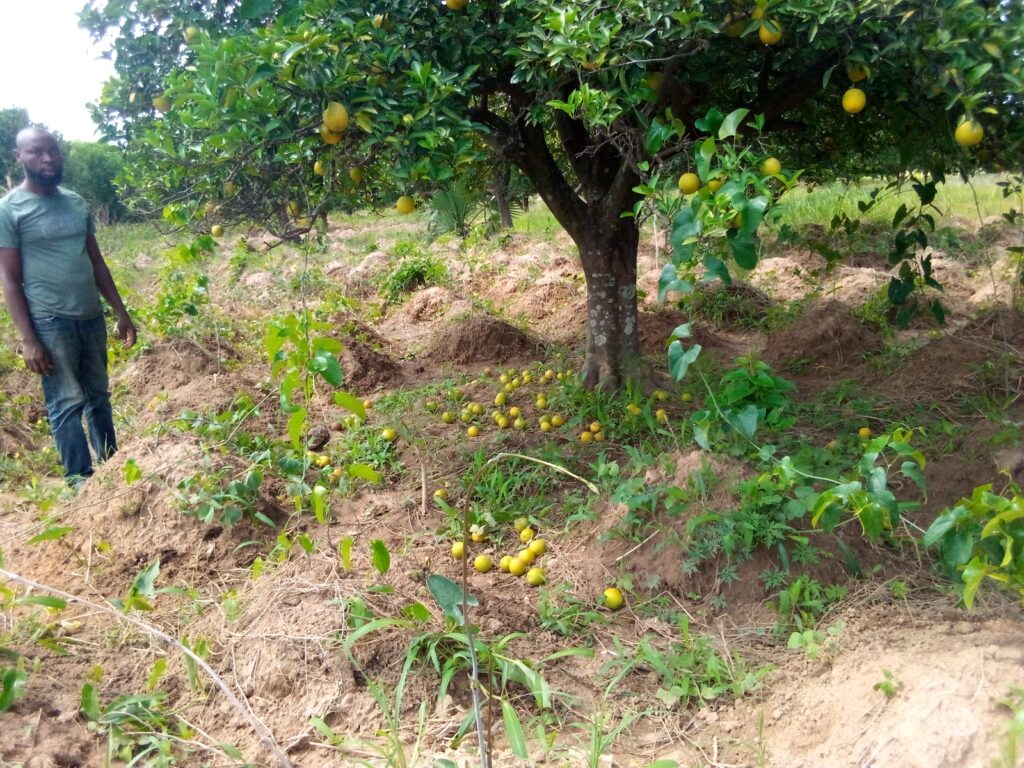
Msugh approached from his hut looking tired and downcast. He narrates what a typical family in the community pass through yearly despite having all it takes to live a comfortable life.
“We have been finding it difficult to preserve the oranges. The only way it can be preserved is naturally by leaving it on the tree. Once it’s plucked, it begins to perish. Sometimes, we have no choice but to pluck all the ripe oranges, even when we do not need them, just so that new ones can grow. After plucking, we dump it at the foot of the tree and it decays there and becomes manure,” he told FIJ.
Msugh said they only sell their oranges when Hausa people come around from other cities to buy. They sell to them for as low as N500 per bag, and whatever is left is hawked to travellers who pass through river Buruku. This reporter also observed that a bucket of orange comprising 20-30 pieces is sold for N200 at the river bank.
“Every administration comes here and makes promises to us, but nothing is ever done. We do not have good roads to transport the products. There are no juice factories to buy from us and put them to good use, so it ends up getting spoilt and making us labour in vain,” he told FIJ.
“We used to have one fruit juice factory called Uteco, but it stopped working shortly after it was established many years ago.”
Msugh said he was already frustrated and was contemplating getting rid of the orange trees so he could use the land for other farm products since they were making him and his family suffer in vain.
N1.9 BILLION APPROVED?
There seems to be no end in sight to the silent war between the people of the Buruku community, their representatives and the Federal Government towards the construction of a bridge above Buruku.
The battle which started as far back as 2008 began with the then House of Representatives member from Buruku federal constituency, Hon. Orker Jev, who moved the first motion for the construction of a bridge in Buruku. He succeeded in getting the House to adopt the motion, and the cost of constructing the bridge at that time was put at N4 billion.
Jev, in an interview with Business Day, said that the project was captured in the 2009 budget and N300 million was allocated for the design alone. The former representative said he expected the contract for the bridge to be awarded the following year but that did not happen.
“I tried to go from office to office, but I was too junior then as a legislator to cause any ripples or waves, and so I needed my time. I think in 2012 again, I brought another motion to remind the House again that the design was still lying somewhere in the cooler,” he said.
“Something was done about it again because it reappeared, but as a design, and it was then that I discovered that that design had not been completed, because according to them, the money had not been released, only part of the money was released.”
“What happens is that you will pass a beautiful motion and that will be the end of the matter, but if you are lucky, it will be implemented; otherwise, you have to follow up and go to some offices and even beg before you get it implemented. That is how the system works.”
Jev reportedly continued to pressure the leadership of the House to act on his motion until he handed over in 2019 to his successor, Hon. Kpam Jimin Sokpo, who continued with the silent battle leading to the allocation of N1.2 billion for the same Buruku bridge as captured in the 2022 national budget, where it was listed as a new project.
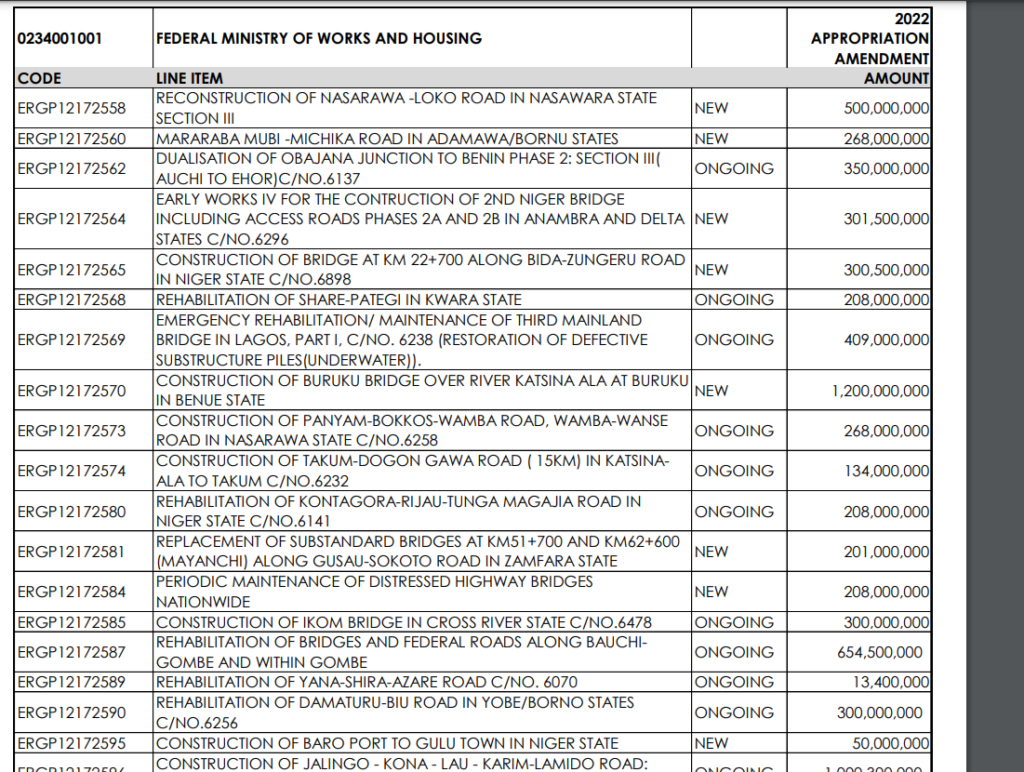
When FIJ contacted Hon. Sokpo, he said the bridge had not been built because it had to go through a rigorous procurement process, being a big project nearly the length of the Second Niger Bridge.
“The design was awarded to a construction company called Hancock Ogundiya & Partners, and they have done the consultancy and design aspect of it, which was submitted earlier this year. The design was earlier done in 2009 by Julius Berger, but it is now old, so the ministry thought it wise to update the design to capture the current reality.
“Currently, the procurement process is ongoing, and prequalification for the contractors is ongoing, after which it would be sent to the Federal Executive Council for approval. That is when the construction work would begin in earnest. That is how things work in Nigeria,” he said.
“I do not blame those people who accuse the governor or House of Reps member of sitting on the money approved for the bridge, because they do not understand how government works. We try to educate them on how government works and how procurement, as well as attracting constituency projects, works.
“That project is a federal project, and you don’t expect the Federal Government to take as much as N50 billion and put it into the account of a House of Reps member or state governor.
“2022 was the very first time this project was captured in the budget. They put it at N1.2 billion. The money is still there; it hasn’t been touched because the contract is yet to be awarded and you can’t access it. It has to go through the right procurement processes before the awarding agency, being the Ministry of Works, can use it to pay contractors.”
FIJ also searched through the website of Hancock Ogundiya & Partners, the company that was awarded the contract for designing the bridge and found that it listed Nigeria’s Ministry of Power, Works and Housing as one of its clients. It also listed their recent projects on the website, but no information about the Buruku project was found on the website.
When FIJ contacted Hancock Ogundiya and partners, Engr. Dayo Oluyemi, who responded, confirmed that the design contract was awarded to them in January 2022.
“We have completed the design and drawings, which have been submitted to the Federal Ministry of Works and Housing. The ministry is yet to award the project for actual construction,” Engr. Oluyemi told FIJ.
When FIJ searched through the website of the Nigeria Open Contracting Portal (NOCOPO), a platform managed by the Bureau of Public Procurement (BPP), which grants citizens, CSOs, private sector and contractors access to track and manage contract files of the federal government, no record about the Buruku bridge was found on the database.
Subscribe
Be the first to receive special investigative reports and features in your inbox.


